In the 1950s and 60s, the Cold War paranoia and the fear of complete annihilation gave rise to an unparalleled wave of alien invasion movies and apocalyptic space adventures. With a new age of technology and research, filmmakers grew increasingly interested in the cinematic interpretation of the extra-terrestrial, technology and the scientific discipline. For this list, I have taken into account films adroitly infused science and the cinematic art form. So, without further ado, here is the list of top classic sci-fi movies from the 50s and 60s. You can watch some of these best classic sci-fi movies on Netflix, Hulu, or Amazon Prime.
10. The Incredible Shrinking Man (1957)
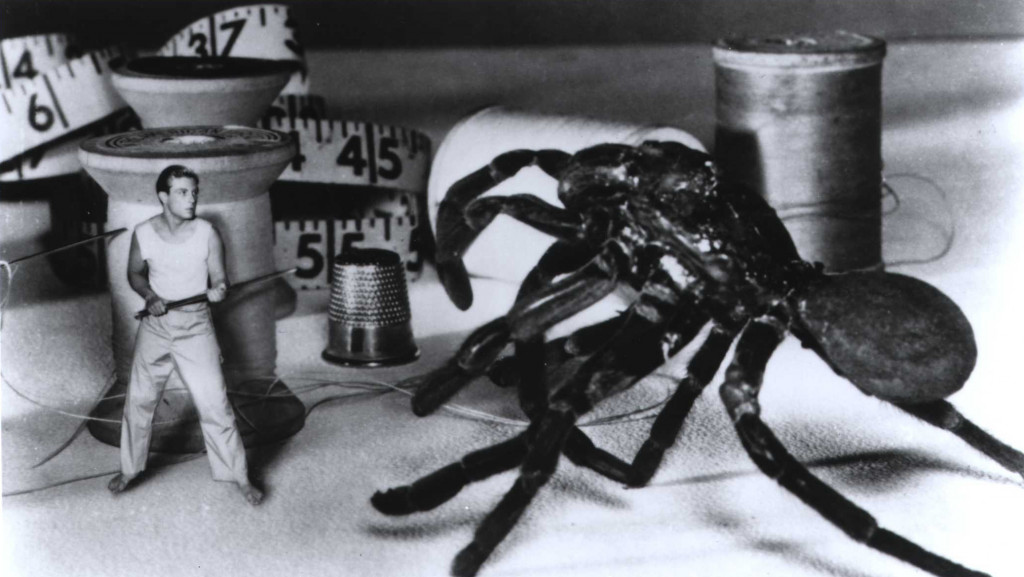
A multi-million dollar hit, ‘The Incredible Shrinking Man’ is the story of Scott Carey, essayed by Grant Williams who upon being exposed to a combination of radiation and insecticide begins to shrink because and medical science seems to be powerless to help him. A science-fiction horror film, ‘The Incredible Shrinking Man’, directed by Jack Arnold, won the first “Hugo Award for Best Dramatic Presentation” and has been selected by the “National Film Registry” by the Library of Congress.
9. Destination Moon (1950)
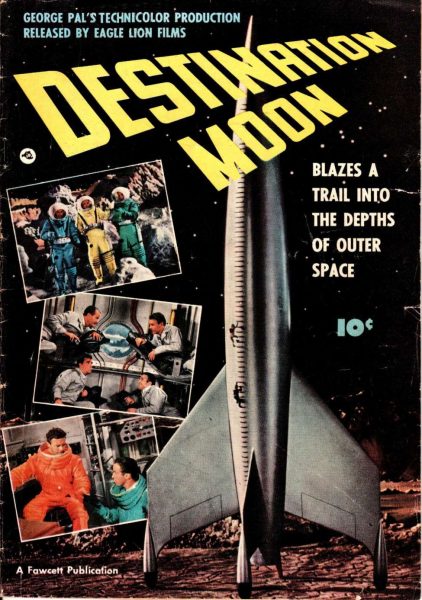
Directed by Irving Pichel, ‘Destination Moon’ is a space exploration science fiction drama which explores an American crew’s mission to reach the moon. Credited to be one of the first of its kind, the film received praise its scientific accuracy with American author and film critic Leonard Maltin praising Bonestell’s lunar paintings as “being visually striking”.
8. The Time Machine (1960)
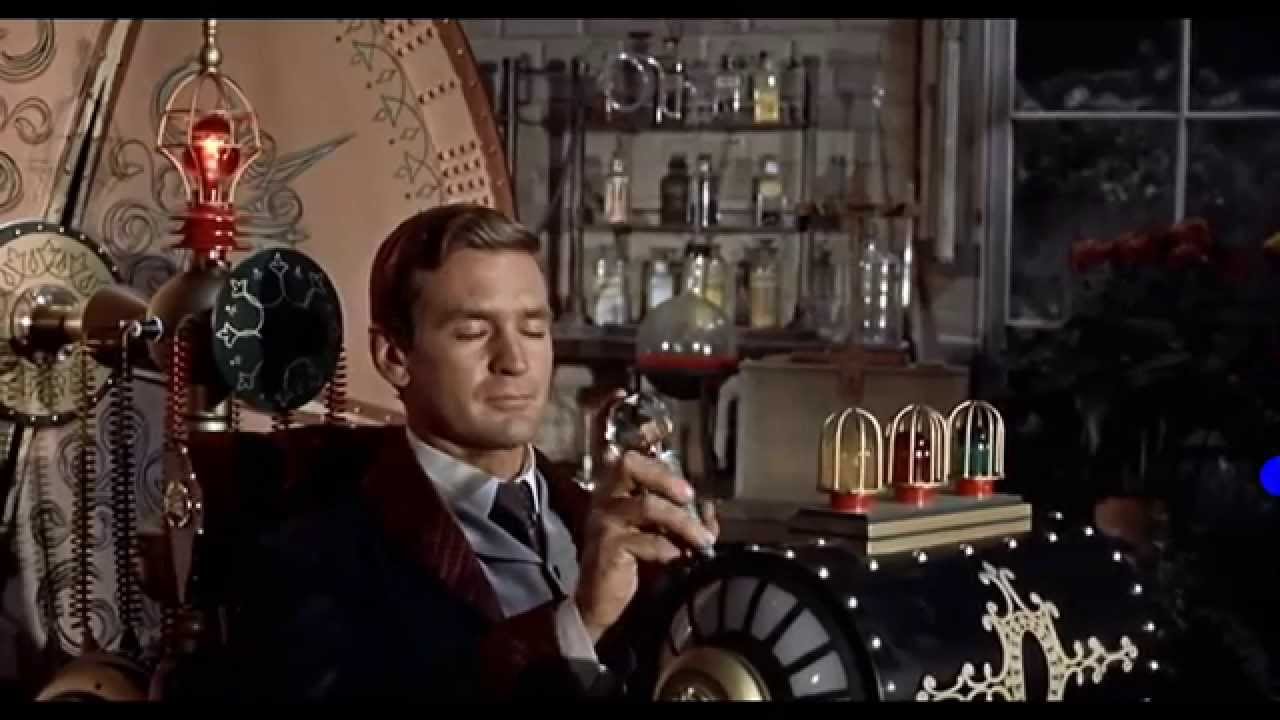
Famous for its time-lapse photographic effects, which show the world changing rapidly as the time traveller, H. George Wells journeys into the future, ‘The Time Machine’ pioneered the wave of visual effects. Adapted from H. G. Wells’ novel of the same name, published in 1865, the film follows an inventor in Victorian England who constructs a machine that enables him to travel into the distant future. Once there, he discovers that mankind’s descendants have been divided into two species – the passive, childlike, and vegetarian Eloi and the underground-dwelling Morlocks, who feed on the Eloi. Directed by George Pal, the film while not being a classic for its direction, has grown to be a favourite for artefacts which include the iconic “time machine” itself.
7. 20,000 Leagues Under the Sea (1954)
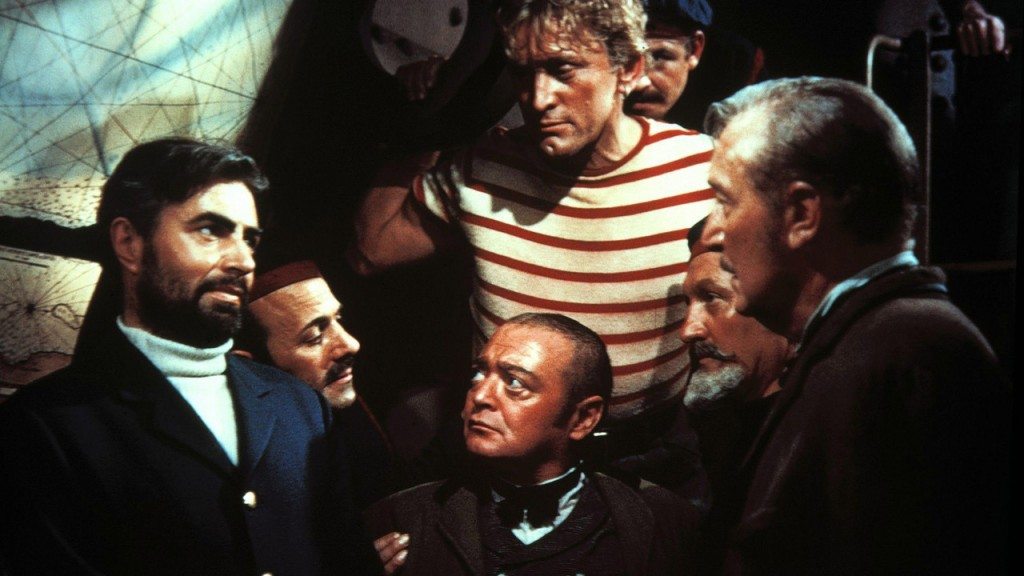
Adapted from a Jules Verne classic, ‘20,000 Leagues Under the Sea’ is a deft infusion of technological visuals and aesthetics, giving birth to what is known as the “steampunk” genre of filmmaking. Directed by Richard Fleischer, this 1954 flick was a fresh departure from the sci-fi films of that time which explored space. A recipient of two Academy Awards, ‘20,000 Leagues Under the Sea’ is still remembered for its giant squid and English actor James Mason’s performance as the infectious anti-hero Captain Nemo.
6. Planet of the Apes (1968)

Based on the French novel ‘La Planète des Singes’ by Pierre Boulle, published in 1963, ‘Planet of the Apes’, set in the distant future, follows an astronaut crew who crash-lands on a strange planet. While the planet seems desolate at first, the surviving crew members learn that it is inhabited by apes have evolved into creatures with human-like intelligence and speech. Seeking attention with its then ground-breaking prosthetic make-up and resonated background score, ‘Planted of the Apes’ kicked off the much celebrated (barring Tim Burton’s 2001 blunder) film series.
5. The Day the Earth Stood Still (1951)
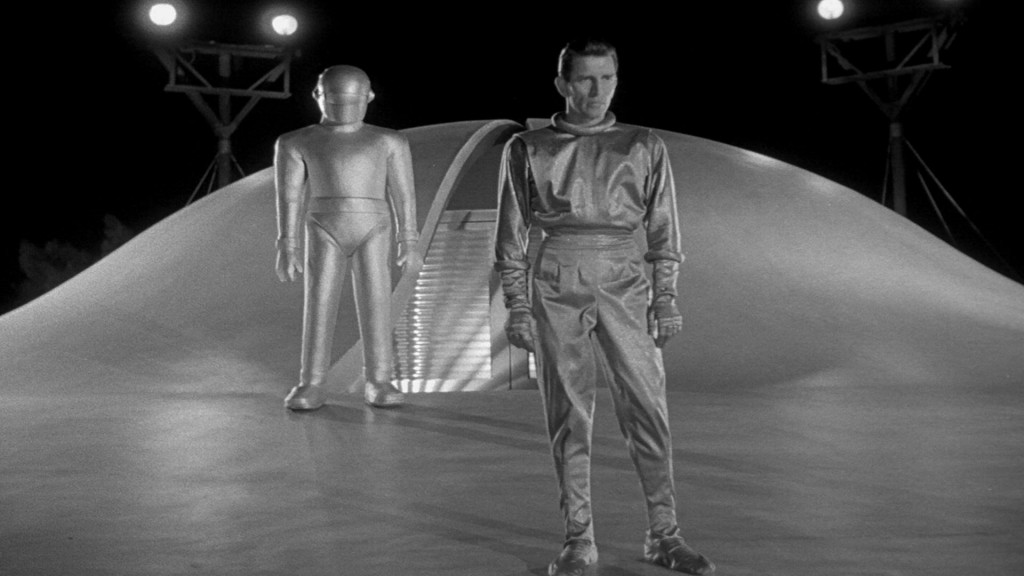
Directed by Robert Wise, ‘The Day the Earth Stood Still’ black-and-white science fiction film about a humanoid alien visitor named Klaatu who comes to Earth, accompanied by a powerful eight-foot-tall robot, Gort, to deliver an important message that will affect the entire human race. Praised for its documentary-style filmmaking and is often cited to have made a change in how science fiction was perceived back then. A commentary on social harmony and world peace, ‘The Day the Earth Stood Still’ has cemented itself as one of the most icon sci-fi movies of all time.
4. Godzilla (1954)
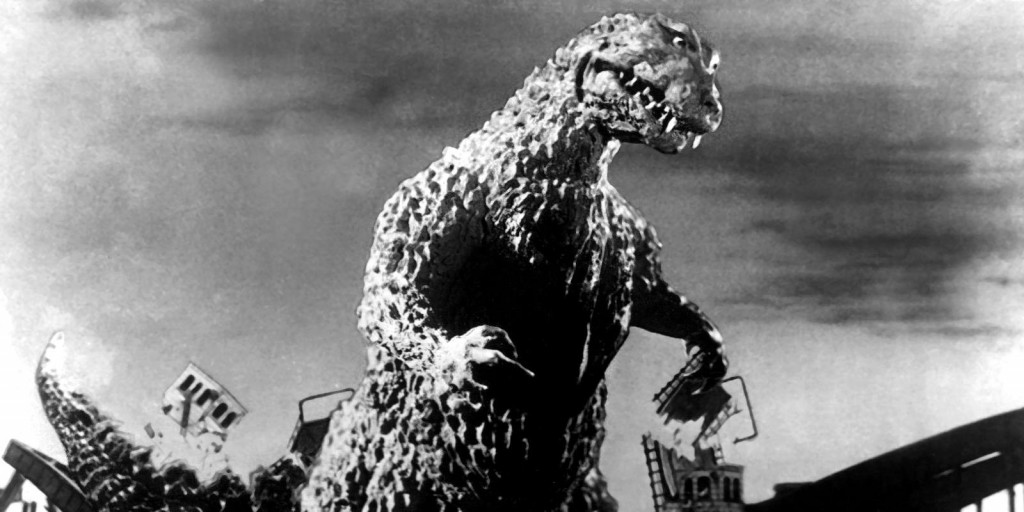
Spawning the longest running “multimedia franchise”, as recognised by Guinness World Records, ‘Godzilla’ is Japanese film about the failed attempt of American nuclear weapons testing which results in the creation of a seemingly unstoppable and dinosaur-like beast called the titular Godzilla. Directed by Ishirō Honda, ‘Godzilla’ was met with criticism initially, with many critics calling out Honda’s callousness in exploiting the devastation caused by World War II. However, detaching from the socio-political commentary, this 1954 sci-fi saw the new light with many praising the neo-noir-esque treatment of the film.
3. The War of the Worlds (1953)
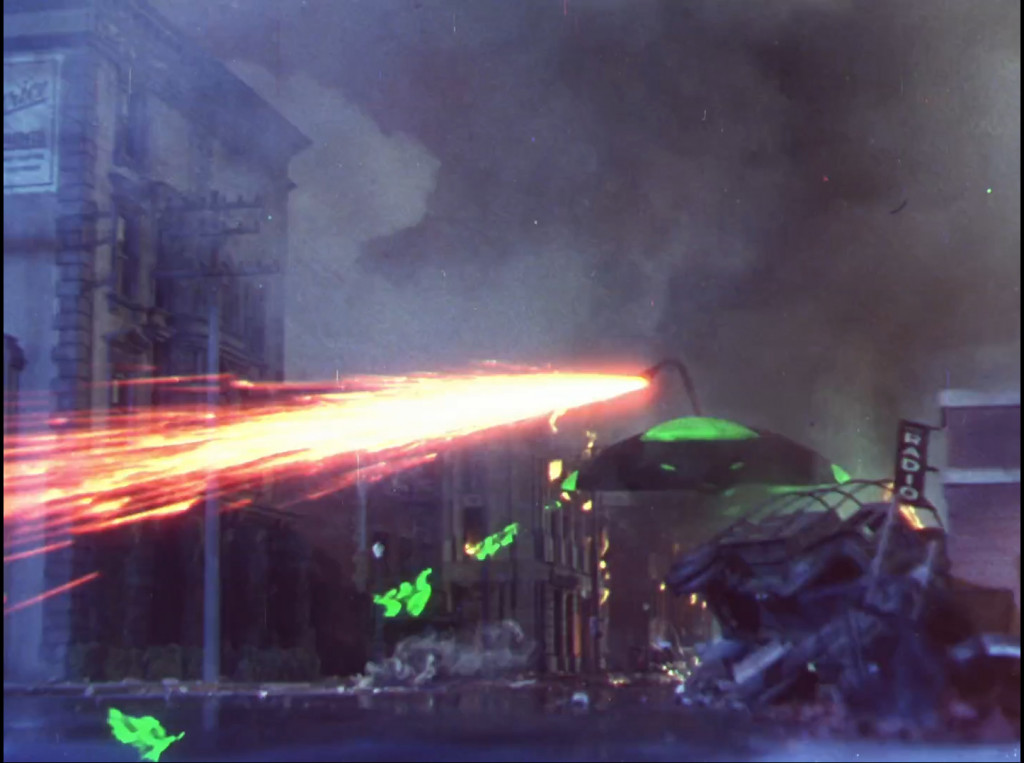
An adaptation of H. G. Wells’ ‘The War of the Worlds’, published in 1898, this 1953 movie revolutionised the UFO-oriented films. Tracing the yet un-researched alien life on Mars, the film follows a small town in California which is attacked by Martians, beginning a worldwide invasion. Directed by Byron Haskin, the film is a commentary on the Cold War and the deploring humanity, amidst their obsession of advancing in science and technology. Winning won an Academy Award for “Best Visual Effects”, the film essentially paved the way for directors such as Steven Spielberg, Ridley Scott and David Cameron to explore the “other” world. While Spielberg’s 2005 science fiction film ‘War of the Worlds’ was an authentic adaptation of Wells’ novel, Haskin’s Technicolor flick prove to be a favourite among critics and audiences alike.
2. Invasion of the Body Snatchers (1956)
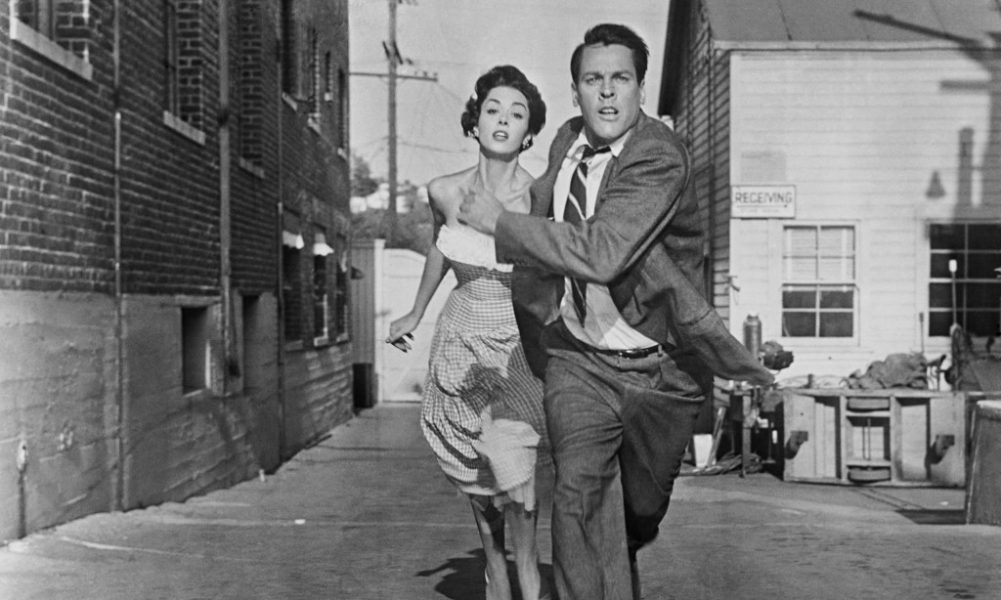
Directed by Don Siegel, ‘Invasion of the Body Snatchers’ is the story of a small-town doctor, essayed by Kevin McCarthy, who learns that the human race of his community will be replaced by emotionless alien duplicates. Adapted from Jack Finney’s novel of the same name, published in 1955, was an instant hit was hailed by many as one of the most accurate science movies.
1. 2001: A Space Odyssey (1968)
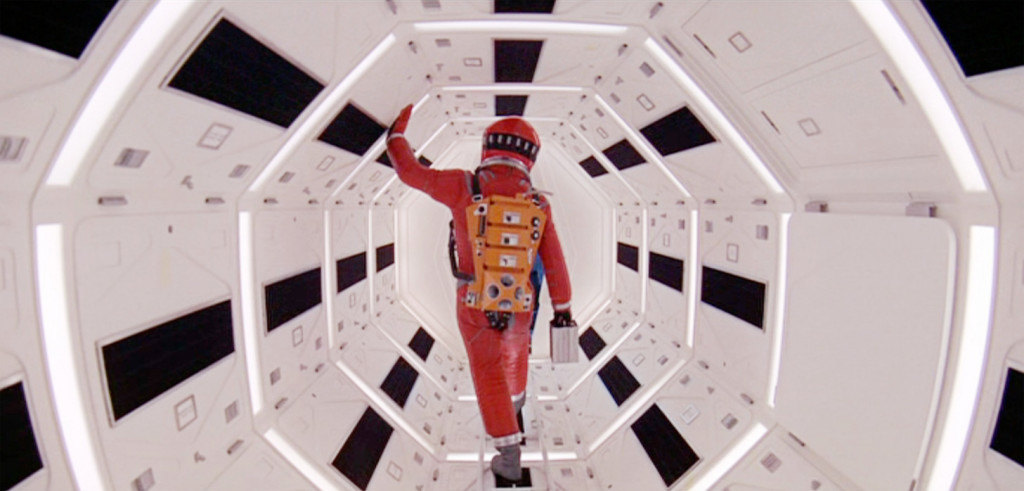
An enigma of a film, ‘2002: a Space Odyssey’ follows a voyage to Jupiter with the sentient computer HAL after the discovery of a mysterious black monolith affecting human evolution, deals with themes of existentialism, human evolution, technology, artificial intelligence, and the existence of extra-terrestrial life. Directed by the eccentric Stanley Kubrick, the film is a terrifying yet an intoxicating watch. Adapted from British author Arthur C. Clarke’s short story’ The Sentinel’ (1951), who also assisted in writing the screenplay, the film utilises the ambiguity of the extra-terrestrial life form. While the other movies on this list heavily rely on the terror of the spaceship, this 1968 wonder develops the horror without actually showing it onscreen. What makes this film such a tremendous watch is its scientific accuracy, a feat still unmatched by many. Adding to its grandeur, the employment of classical music and minimalist dialogues elevated the discreet horror and opacity. Like any visionary masterpiece, the film wasn’t a critical success at the time of its release. However, with the passage of time, ‘2001: A Space Odyssey’ has seasoned to be one of the greatest science-fiction films of all time. Not surprisingly, ‘2001: A Space Odyssey’ nabbed the Academy Award for “Best Effects, Special Visual Effects” and the BAFTA for “Best Art Direction”, “Best Cinematography” and “Best Sound Track”.
Read More: Best Sci-Fi Movies of All Time

You must be logged in to post a comment.